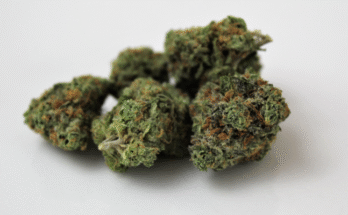Did you know that the second largest contributor to pollution—right after oil and gas—is the textile industry? From the clothes we wear to the sheets we lay on, most of the fabrics in our lives are far from environmentally friendly.
Fortunately, an Indian natural fibres textile company, Canva Fibre Labs LLP, is revolutionising the textile industry. By using hemp and other natural fibres, they are creating textiles that are “eco-friendly, socially good, and functionally superior” when compared to cotton.
CanvaHemp, their proprietary hemp-based fabric, is up to four-times as durable as cotton, in fact!
“Just like how the oil and gas industry needs alternative fuel and energy backed by solutions like electric vehicles or solar energy, the textile industry needs alternative materials,” explains one of the founders, Shikha Shah.
With cotton one of the leading agricultural offenders when it comes to insecticides, herbicides, and water user, we couldn’t agree more.
Meet the Environmentally Superior Textiles
Fibre Labs is using hemp plants, ramie plants, banana plants, and even their agricultural waste to create fibres and textiles with superior function and sustainability. These plants are already being produced in India, allowing adequate supply without large scale farming changes.
Environmental Impact: The Numbers
CanvaHemp, one of Fibre Lab’s primary focuses, is environmentally superior to cotton in more ways than one. The eco-friendly aspects of CanvaHemp include:
- ⅓ as much water use as cotton
- Increased land productivity when compared to cotton
- Zero pesticide and insecticide use
- Easily decomposable products that won’t add burden to our landfills
Another one of their products, CanvaBanana, uses banana stems to make fibre. These stems are typically agricultural waste products that are burned off, leading to pollution. CanvaBanana fibres and textiles creates an opportunity to put these waste products to use.
These benefits are huge, particularly in India, a country with water shortages, a pollution crisis, and deteriorating soil quality that are environmental and social emergencies.
Social Impact
Aside from conserving water, reducing pollution, and improving soil quality thanks to organic farming practices, farmers in India can benefit from growing these alternative crops.
Hemp farmers may be able to quadruple their income, and banana farmers can make a profit off waste that they would otherwise have to get rid of. With farmers in India often struggling economically, these opportunities can change the lives of many.
Moreover, the creation of these fibres opens the opportunity for increased entrepreneurship in India. These fibres can be used to make hand woven textiles and other crafts that can create a new source of income for those living here.
Better Fabrics
You know that favorite shirt that you’ve had for years, the one that’s starting to look drab and socially unacceptable? What if that shirt’s functional life was multiplied by three or four?
Imagine favorite clothing that would last you decades rather than years! That’s the reality with alternative fabrics.
Hemp-based fabric CanvaHemp, as well as
- Naturally antimicrobial
- Breathable and warm, allowing all-season wear
- Easily dyed, like cotton
- UV-protective
- Versatile (can be used for non-woven, knit, or weaved fabric, clothing, carpet, shoes, and more)
- Blendable with other fabrics
This versatility and quality are unmatched by the fabrics available today.
How Soon Can We Expect to See Fibre Labs Textiles in the UK?
So, when will we in the UK have access to these textiles that we can purchase with a clear conscience? While an exact date has not been announced, the possibility of distribution in the not-so-far future is likey thanks to existing textile machinery.
One of the aspects that makes Fibre Lab’s CanvaHemp and other fibres unique are their ability to be spun on existing cotton spinning machines. This makes it possible for existing textiles manufacturers to try these new fabrics without large investments.
The Future of Textiles is Near
Fibre Labs is a great example of the kind of companies that we need for a healthy, sustainable future. Through their innovation, the world can begin to fully enjoy the sustainability and versatility of the unique fibres that come from hemp. Consumers, farmers, and the environment are set to benefit from this new opportunity.




